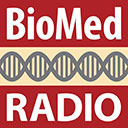High-protein diet curbs metabolic benefits of weight loss
Insulin sensitivity unimproved in obese women who lose weight but consume excess protein
 Robert Boston
Robert BostonBettina Mittendorfer, PhD, (left) measures Mary Akin's height to calculate her body mass index, which is a ratio of height to body weight. Akin has been part of a study aimed at helping women lose weight and determining the effects of a high-protein diet on weight loss. The research team found that those who ate a high-protein diet to lose weight didn't get the metabolic benefits seen in women who lost weight on a lower-protein diet.

Dieters sometimes consume extra protein to stave off hunger and prevent loss of muscle tissue that often comes with weight loss.
But in a study of 34 postmenopausal women with obesity, researchers at Washington University School of Medicine in St. Louis found that eating too much protein eliminates an important health benefit of weight loss: improvement in insulin sensitivity, which is critical to lowering diabetes risk.
The findings are available Oct. 11 in the journal Cell Reports.
“We found that women who lost weight eating a high-protein diet didn’t experience any improvements in insulin sensitivity,” said principal investigator Bettina Mittendorfer, PhD, a professor of medicine. “However, women who lost weight while eating less protein were significantly more sensitive to insulin at the conclusion of the study. That’s important because in many overweight and obese people, insulin does not effectively control blood-sugar levels, and eventually the result is type 2 diabetes.”
Insulin sensitivity is a good marker of metabolic health, one that typically improves with weight loss. In fact, the women in the study who lost weight while consuming less protein experienced a 25 to 30 percent improvement in their sensitivity to insulin.
Mittendorfer and her colleagues studied 34 women with obesity who were 50 to 65 years of age. Although all of the women had body mass indices (BMI) of at least 30 — a BMI of 30 or more indicates significant obesity — none had diabetes.
 Robert Boston
Robert BostonThe participants were randomly placed into one of three groups for the 28-week study. In the control group, women were asked to maintain their weight. In another group, the women ate a weight-loss diet that included the recommended daily allowance (RDA) of protein: 0.8 grams per kilogram of body weight. For a 55-year-old woman who weighs 180 pounds, that would come to about 65 grams of protein per day.
In the third group, the women ate a diet designed to help lose weight, but they consumed more protein, taking in 1.2 grams per kilogram of body weight, or almost 100 grams for that same 180-pound woman.
“We provided all of the meals, and all the women ate the same base diet,” Mittendorfer explained. “The only thing we modified was protein content, with very minimal changes in the amount of fat or carbohydrates. We wanted to hone in on the effects of protein in weight loss.”
The researchers focused on protein because in postmenopausal women, there is a common belief that consuming extra protein can help preserve lean tissue, keeping them from losing too much muscle while they lose fat.
“When you lose weight, about two-thirds of it tends to be fat tissue, and the other third is lean tissue,” Mittendorfer said. “The women who ate more protein did tend to lose a little bit less lean tissue, but the total difference was only about a pound. We question whether there’s a significant clinical benefit to such a small difference.”
The women who ate the recommended amount of protein saw big benefits in metabolism, led by a 25 to 30 percent improvement in their insulin sensitivity. Such improvements lower the risk for diabetes and cardiovascular disease. The women on the high-protein diet, meanwhile, did not experience those improvements.
“Changing the protein content has very big effects,” Mittendorfer said. “It’s not that the metabolic benefits of weight loss were diminished — they were completely abolished in women who consumed high-protein diets, even though they lost the same, substantial amounts of weight as women who ate the diet that was lower in protein.”
It’s still not clear why insulin sensitivity didn’t improve in the high-protein group, and Mittendorfer said it’s not known whether the same results would occur in men or in women already diagnosed with type 2 diabetes. She plans to continue researching the subject.






